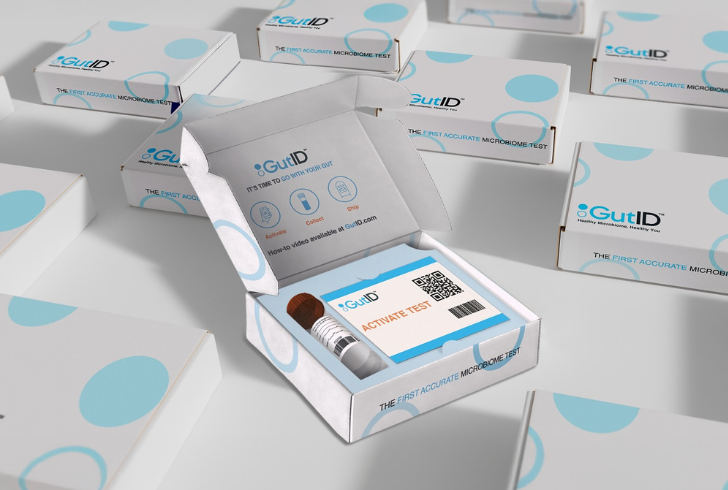Is a $599 Gut Test Worth It? Discover What Your Stool Can Reveal
Gut issues aren’t exactly fun to talk about, but they’re surprisingly common. If you’ve ever dealt with bloating, gas, abdominal cramps, or unpredictable bowel habits, you’re not alone. In fact, around two-thirds of adults in the US regularly experience digestive troubles, and many never bring it up with their doctors.
For some, the symptoms become frustrating enough that they begin self-tracking: jotting down food logs, switching up diets, or testing supplements. Others turn to at-home testing kits, which claim to give insight into what’s going on inside their gut. One of the newest options in this category is a gut test called GutID, which was released earlier this year.
What Is a Gut Test and Why Do People Take It?
A gut test typically involves analyzing a stool sample to look at the microbes—bacteria, fungi, and viruses—that live in your digestive system. The idea is to identify imbalances that might be contributing to your symptoms, and in some cases, detect warning signs of more serious health issues.
GutID offers two versions of this stool-based gut test:
– Core Gut Insights ($399): Focuses on digestive health basics.
– Complete Microbiome Assessment ($599): Offers a more detailed view, including how the gut connects with brain function and immune response.
Results from these tests typically arrive within three to four weeks.
Why Your Gut Microbiome Matters

Instagram | voiceofhealth | A healthy gut impacts overall well-being, influencing immunity and mood.
The gut isn’t just about digestion. It’s deeply tied to overall health, playing a role in everything from immune support to mood regulation. Disruptions in gut bacteria have been linked to:
– Irritable Bowel Syndrome (IBS)
– Type 2 diabetes
– Obesity
– Mental health concerns like anxiety and depression
– Even cancers such as colorectal cancer
The Complete Microbiome Assessment digs into these connections, providing information that can be used to guide personalized changes in diet, supplements, or lifestyle habits.
What Makes GutID Stand Out?
Paul Denslow, who helped develop the test, says the team behind GutID wanted to go beyond what typical microbiome kits offer. According to him, earlier tests often fell short when people needed clear answers.
“We realized that many people were still left guessing after they tried other tests,” he said. “So we focused on making sure our reports actually give clarity—something you can act on.”
GutID uses DNA sequencing technology that examines gut bacteria at a much deeper level. Unlike older systems that might give you broad categories, this gut test can break down microbial activity to the specific strain.
Does It Really Work?
Some doctors remain skeptical about at-home gut testing in general. One gastroenterologist previously referred to them as “more confusing than helpful,” warning that results often lead people down a rabbit hole of trial and error.
But Denslow argues that GutID’s approach is different. He claims their gut test gives repeatable, science-backed results.
At a recent health tech event, he shared a case where someone had struggled with chronic digestive issues and found no answers through conventional tests. According to Denslow, the GutID report finally identified a previously undetected bacterial imbalance, allowing the patient to take targeted steps toward recovery.
What Happens After the Test?
The report isn’t just about identifying what’s off. It also suggests practical adjustments, such as:
– Foods to avoid or include
– Specific strains of probiotics or prebiotics
– Possible lifestyle changes, like hydration or fiber intake
Importantly, the company doesn’t sell supplements or food plans. Their approach is to offer data and let users or their healthcare providers decide what to do with it.
Real People, Real Results

Instagram | gutidhealth | GutID technology hints at early detection of colorectal and pancreatic cancers.
Michael Gaumond, a 73-year-old from California, decided to try the gut test after hearing about it from a friend. He’d undergone colon surgery the year before and still dealt with digestive issues. His results suggested cutting back on red meat and processed foods while incorporating more salads, lean protein, and healthy fats. After following those suggestions consistently, he dropped nearly 40 pounds and felt significantly better.
“I didn’t expect such a big change,” Gaumond said. “But the recommendations made sense, and I stuck to them.”
Fara Erspamer, 60, was another early user. Her son works with the team behind the test, so she gave it a try out of curiosity. She was shocked when the report found problematic bacteria, especially since her colonoscopy a year earlier had shown no concerns.
After showing her GutID results to her doctor, she had another colonoscopy, and this time, a polyp was found and removed. It wasn’t cancerous, but she believes the test helped detect something her routine checkup missed.
Can a Gut Test Help Detect Cancer?
While the main purpose of GutID is to support digestive wellness, the team behind it is working on something even bigger. According to Denslow, they’re seeing early evidence that their technology could be used to detect certain types of cancer—specifically colorectal and pancreatic—much earlier than standard screenings.
He shared that a new version of the test focused on disease detection may be ready within the next year or so.
“The gut holds a massive amount of information,” Denslow explained. “We finally have the tools to actually read it in detail—and that’s opening up opportunities we didn’t have before.”
Should You Spend $599 on a Gut Test?
Here’s the thing—it depends on your situation. If you’ve been struggling with digestive issues that don’t seem to improve, or if you’re looking for a deeper understanding of your body, a gut test might provide insight that other tests can’t.
On the flip side, it’s not a replacement for regular screenings or a professional diagnosis. If you have serious or ongoing symptoms, it’s still important to work with a doctor. However, for many, the value lies in personalized feedback and the motivation to make better health choices.